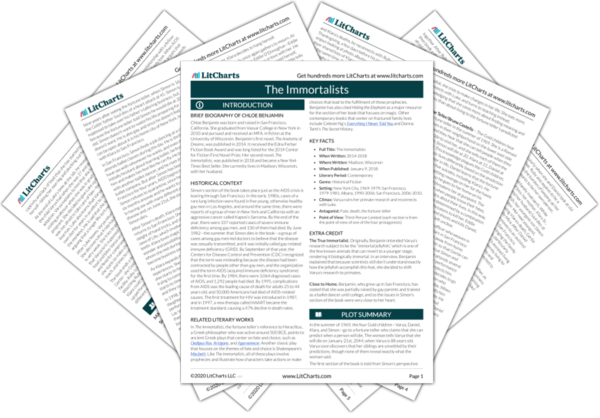Again, Daniel continues to maintain the idea that he doesn’t believe in fate, and that choice was the only contributing factor to Klara’s and Simon’s deaths. Additionally, his worry about becoming like Klara foreshadows how he too, will allow an obsession to take hold of him.
